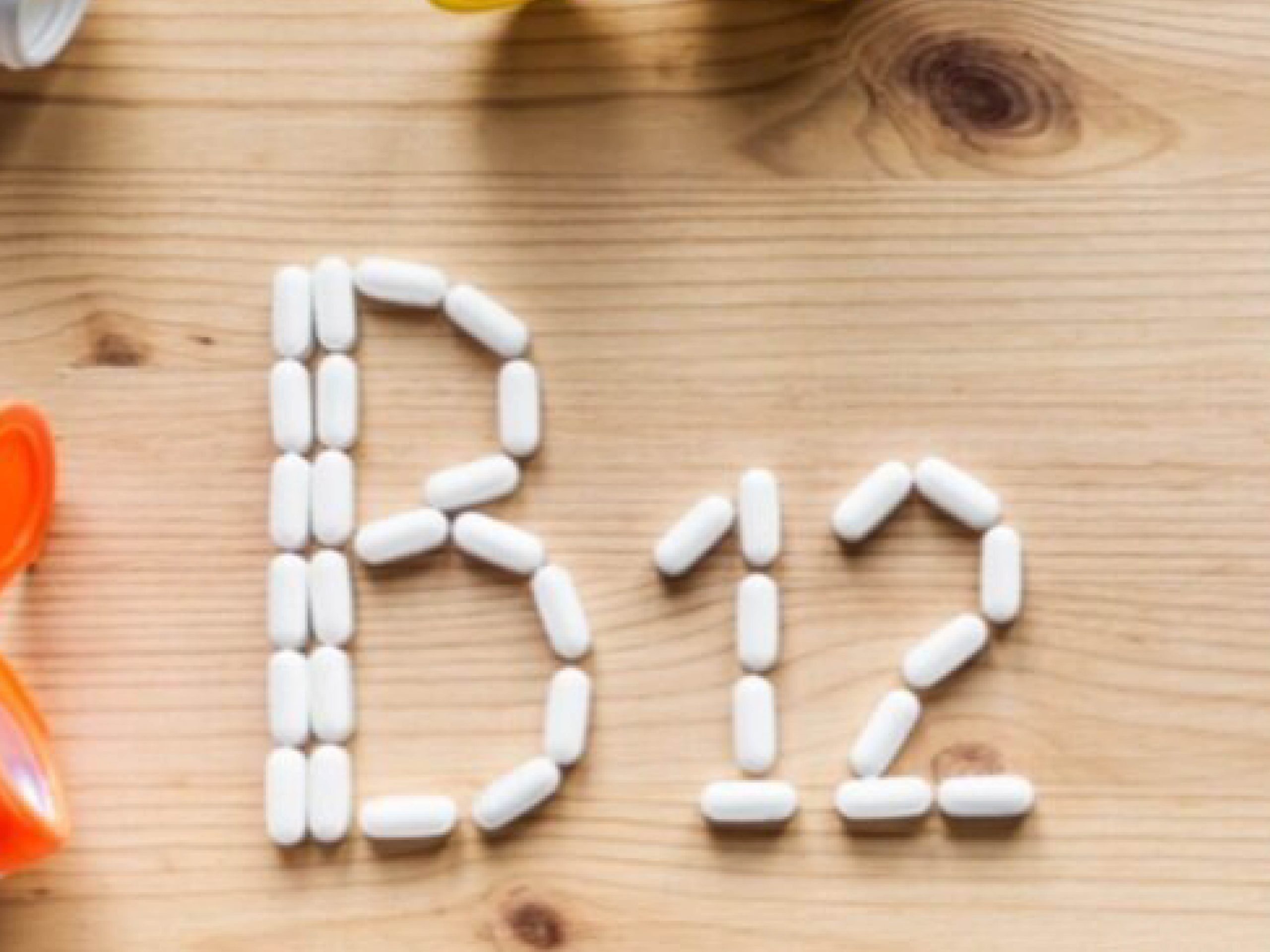Defining Vitamin B12 and Its Importance in a Vegan diet
Vitamin B12 is an essential water-soluble vitamin that our body cannot make and should be consumed in appropriate quantities on a regular basis.
B12 is the only vitamin that is not recognized as being reliably supplied from a varied wholefood, plant-based diet with plenty of fruit and vegetables, together with exposure to sun. In the absence of any apparent dietary supply, deficiency symptoms usually take five years or more to develop in adults, though some people experience problems within a year.
Symptoms of B12 deficiency
Two subgroups of vegans are at particular risk of B12 deficiency: long-term vegans who avoid common fortified foods (such as raw food vegans or macrobiotic vegans) and breastfed infants of vegan mothers whose own intake of B12 is low.
In adults, typical deficiency symptoms include loss of energy, tingling, numbness, reduced sensitivity to pain or pressure, blurred vision, abnormal gait, sore tongue, poor memory, confusion, hallucinations, and personality changes.
Getting an adequate amount of B12
The US recommended intake is 2.4 micrograms a day for ordinary adults rising to 2.8 micrograms for nursing mothers. This amount should be sufficient to avoid even the initial signs of inadequate B12 intake in most people.

Recommendations
According to the Vegan Society, to get the full benefit of a vegan diet, vegans should do one of the following:
1. Eat fortified foods two or three times a day to get at least three micrograms (mcg or µg) of B12 a day
Availability of fortified foods varies from country to country and amounts of B12 vary from brand to brand, so ensuring an adequate B12 supply from fortified foods requires some label reading and thought to work out an adequate pattern to suit individual tastes and local products.
2. OR take one B12 supplement daily providing at least 10 micrograms
3. OR take a weekly B12 supplement providing at least 2000 micrograms
Any B12 supplement tablet should be chewed or allowed to dissolve in the mouth to enhance absorption.
Bottom Line: A natural, healthy and compassionate diet
According to the Institute of Medicine, “Because 10 to 30 percent of older people may be unable to absorb naturally occurring vitamin B12, it is advisable for those older than 50 years in the US to meet their RDA mainly by consuming foods fortified with vitamin B12 or a vitamin B12-containing supplement.” Therefore, Vegans using adequate amounts of fortified foods or B12 supplements are much less likely to suffer from B12 deficiency than the typical carnivore.
References
- Institute of Medicine (US) Standing Committee on the Scientific Evaluation of Dietary Reference Intakes and its Panel on Folate, Other B Vitamins, and Choline. Dietary Reference Intakes for Thiamin, Riboflavin, Niacin, Vitamin B6, Folate, Vitamin B12, Pantothenic Acid, Biotin, and Choline. Washington (DC): National Academies Press (US); 1998. 9, Vitamin B12. Available from: https://www.ncbi.nlm.nih.gov/books/NBK114302/
Written by: Jennifer Chalhoub RDE and reviewed by Carol Aguirre MS, RD/LDN

